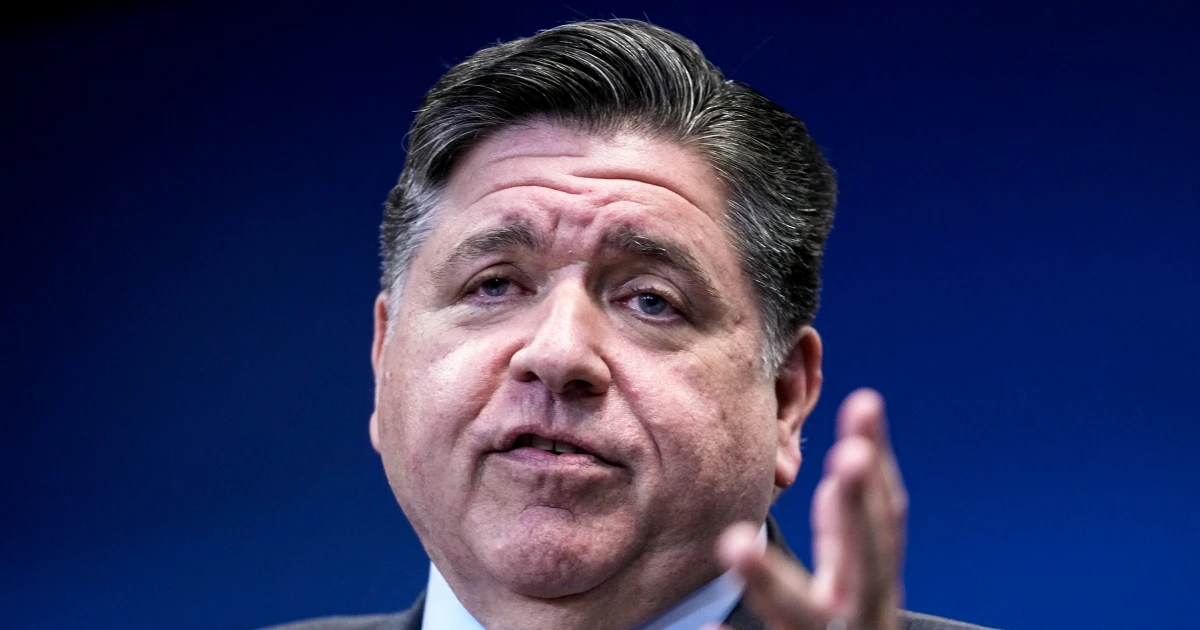
Welcome to the online version of From the Politics Desk, a newsletter that brings you the NBC News Politics team’s latest reporting and analysis from the White House, Capitol Hill and the campaign trail.
In today’s edition, we examine how blue-state Democrats are responding to President Donald Trump’s latest National Guard deployment efforts. Plus, Allan Smith explores a key divide in the New York City mayoral race.
Sign up to receive this newsletter in your inbox every weekday here.
— Adam Wollner
Blue states fight back against Trump’s National Guard moves
After President Donald Trump followed through with threats to deploy National Guard troops to Chicago and Portland, Oregon, over the weekend, Democratic officials have swiftly responded.
Illinois sued today in an attempt to block the Trump administration, but the judge assigned to the case indicated she wouldn’t take any action until Thursday at the earliest.
Chicago Mayor Brandon Johnson signed an executive order called “ICE Free Zone,” which prohibits federal immigration agents from using any city-owned property during their operations in Chicago.
And Democratic Gov. JB Pritzker said at a news conference that Trump’s plans to send in the National Guard were an “unconstitutional invasion of Illinois by the federal government.”
It all comes after a federal judge in Oregon issued a ruling late last night blocking the Trump administration from sending federalized National Guard members from California — or any other state — to Portland.
Oregon Gov. Tina Kotek, Democrat, said in a statement: “The facts haven’t changed. There is no need for military intervention in Oregon. There is no insurrection in Portland. No threat to national security. Oregon is our home, not a military target. Oregonians exercising their freedom of speech against unlawful actions by the Trump Administration should do so peacefully.”
Trump’s moves escalate his targeting of blue cities and states amid his crackdown on immigration and crime, after he deployed National Guard troops to Los Angeles and Washington, D.C. Last month, a federal judge in California ruled that his deployment of Marines and National Guard members there was illegal. D.C.’s Democratic attorney general has also sued to challenge the deployment of troops in the capital.
Trump has also threatened to send the National Guard into other prominent Democratic-run cities, including New York, Baltimore and New Orleans.
The White House maintained Trump’s actions are lawful.
“Amidst ongoing violent riots and lawlessness, that local leaders like Pritzker have refused to step in to quell, President Trump has exercised his lawful authority to protect federal officers and assets. President Trump will not turn a blind eye to the lawlessness plaguing American cities,” White House spokeswoman Abigail Jackson said in a statement.
The New York City divide shaping its contentious mayoral race
By Allan Smith
New York’s mayoral contest has fully surfaced a tension bubbling in city politics for years: the divide between lifelong New Yorkers and young professionals who have recently moved in.
In his 7-point Democratic primary win over former Gov. Andrew Cuomo in June, state Assemblyman Zohran Mamdani cleaned up with younger voters who live in some of New York’s most gentrified neighborhoods — including Bushwick, Williamsburg and Bedford-Stuyvesant. Cuomo, meanwhile, edged out Mamdani in majority-Black, outer-borough neighborhoods that have experienced less gentrification, as well as other places like the Upper East Side and the Upper West Side, also home to many longtime New Yorkers.
That divide is playing out in the general election, too, in which Cuomo is running as a third-party candidate. A CBS News survey last month found that Mamdani held a 51-point edge over Cuomo among voters who have moved to New York within the last 10 years. Among voters who have lived in New York for more than 10 years, Mamdani’s advantage dropped to 19 points.
And among born and raised New Yorkers, Mamdani held a smaller, 7-point advantage over Cuomo. Cuomo and Republican nominee Curtis Sliwa, two fixtures of New York politics for decades, combined to win 49% of that demographic.
Surveys show Mamdani with double-digit leads, enjoying a glide path to election next month, even after Mayor Eric Adams dropped his own third-party campaign. Still, the divide has set the terms of debate for this fall’s contest — and highlighted what could become a strain on a potential Mamdani mayoralty.
The Rev. Al Sharpton, a fixture in New York City and Democratic politics for decades, said in an interview that he could not recall a citywide election in which the split between lifelong New Yorkers and new transplants was as wide.
“Those who have grown up here all their life are more traditional voters who know the traditional battles in the city — when crime was higher, when it was lower, when there was more racial divide, when there were more police issues like stop and frisk,” said Sharpton, the host of MSNBC’s “PoliticsNation.” “Those who are new tend to not know a lot of the history and take a fresh look at the city as they know it.”
Read more from Allan →
That’s all From the Politics Desk for now. Today’s newsletter was compiled by Adam Wollner.
If you have feedback — likes or dislikes — email us at politicsnewsletter@nbcuni.com